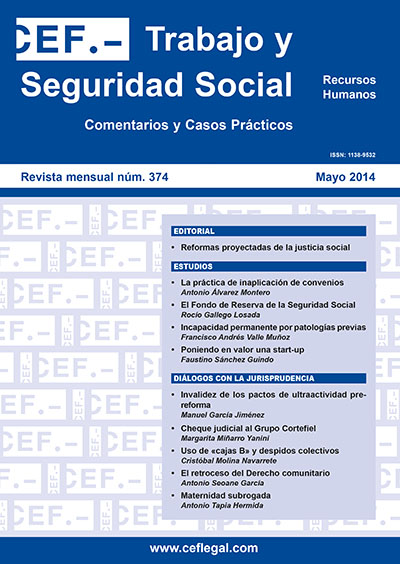New conventional norms of non-application of collective agreements: from rules to the practice
DOI:
https://doi.org/10.51302/rtss.2014.2938Keywords:
collective bargaining, social dumping, non-application of collective agreementsAbstract
The non-application of collective agreements for negative economic situations of enterprises is a useful internal labor flexibility, to ensure competitiveness without losing jobs. The practice is revealing an increasing use. Therefore, the Spanish labor reform being successful here. However, these practices are multiple risks, economic –promotes unfair competition– and social –impoverishes workers–. Therefore, sectoral collective bargaining is interested in participating in an active way in the regulation of these practices. This participation can not be the precedent that is radically resisted his existence, but must adapt to changing times, so as to ensure the best prevention of economic situations and, in any case, the conditional nature of the devaluation of wages effective employment pacts.



















